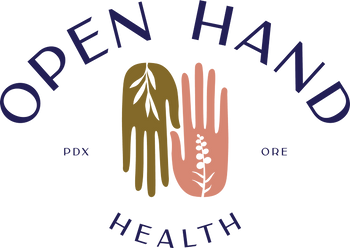
The Racist Past and Present of Cannabis (De)Criminalization
As more and more states like Oregon legalize or decriminalize weed we see an influx of interest, both scientific and civilian, in its many potentials. From musculoskeletal pain to PTSD to autoimmune conditions, cannabis and its byproducts show enormous promise as therapeutic agents. In a vacuum, this interest is harmless - beneficial, even. But if it eclipses awareness of the highly racialized, anti-Black legacy of its criminalization, it will perpetuate harm against oppressed communities.
The DEA first named cannabis a Schedule-I drug, meaning it has “no accepted medicinal use, high abuse potential, concerns for dependence,” in 1970 during Nixon’s disastrous drug war. This has come to be understood as a broad program of anti-Black legislation under the guise of social intervention and community safety whose ramifications are felt generations later.
Mandatory minimum sentencing, incarceration, and penalties related to cannabis use, possession, or distribution were designed to comprehensively target and punish Black folks. Policing practices like stop-and-frisk and disproportionate surveillance developed during the drug war remain in use today.
A racist legacy continues
At present, despite equivalent rates of cannabis consumption, Black people are 3.64 times more likely to be arrested for possession than white people according to a 2020 report by the ACLU. Arrests, incarceration, and convictions are only part of the story. Job loss, housing insecurity, financial aid ineligibility, child custody loss, and immigration status endangerment due to lifelong categorization as “criminal” are enduring everyday realities for anyone facing such charges. But because of the disproportionate enforcement of laws against and incarceration of BIPOC in this country, drug legalization is inherently an issue of racial justice, and thus an issue of public health.
BIPOC and specifically Black people, those most harmed by cannabis criminalization, shouldn’t be excluded from the economic boon offered by the cannabis industry. In Portland, licensing costs for starting a dispensary amount to $5000, plus a $480 annual fee. This is in addition to startup costs, which generally number in the hundreds of thousands of dollars. This represents an insurmountable financial obstacle to all but the wealthiest among us which, as the systemic nature of oppression reinforces, tend also to be the whitest among us.
Does a solution exist?
The inequality can’t be countered simply by equally distributing profit. Change must be adopted at every level. This means advocating for the release of anyone incarcerated on cannabis-related charges, expunging of criminal records, social assistance for the formerly-incarcerated during re-entry in society (top of mind for all of us emerging tentatively from a pandemic), rallying against employment discrimination on the basis of a criminal record, reparations paid directly to families, and so on.
What can be done on a practical level? This is neither a definitive guide nor exhaustive history, and your individual means and capacity must be considered. But you can:
-
Support Black-owned dispensaries
-
Buy from businesses that fund reparations initiatives and organizing
-
Floret Coalition from Broccoli Magazine
-
-
Sign up to be a pen pal to incarcerated folks
-
Organize and advocate for all of the legislative changes
-
Support local re-entry programs
-
Demand accountability from your representative and local law enforcement
-
Pay direct cash reparations to (QT)BIPOC in need
-
Educate yourself and others on this matter.
-
The New Jim Crow, Michelle Alexander

